That is the case of a young man named L.D.B. (30 years old, living in Ho Chi Minh City). According to initial information, in the evening, while playing soccer with his friends for about 45 minutes, Mr. B. suddenly felt dizzy, lost his balance and collapsed on the field, much to the astonishment of his teammates.
The young man was taken to a nearby hospital within 20 minutes of the onset of symptoms. At the Emergency Department, after examination, doctors noted that the patient had dizziness, hemiplegia (loss of coordination), and blood pressure was recorded at 200/100mmHg.
MRI results confirmed that the patient had a right cerebellar infarction, a stroke diagnosis. The patient's blood pressure was controlled, and thrombolytic drugs were injected intravenously to reopen the blocked blood vessels, helping to provide timely blood and oxygen to brain cells at risk of serious damage.
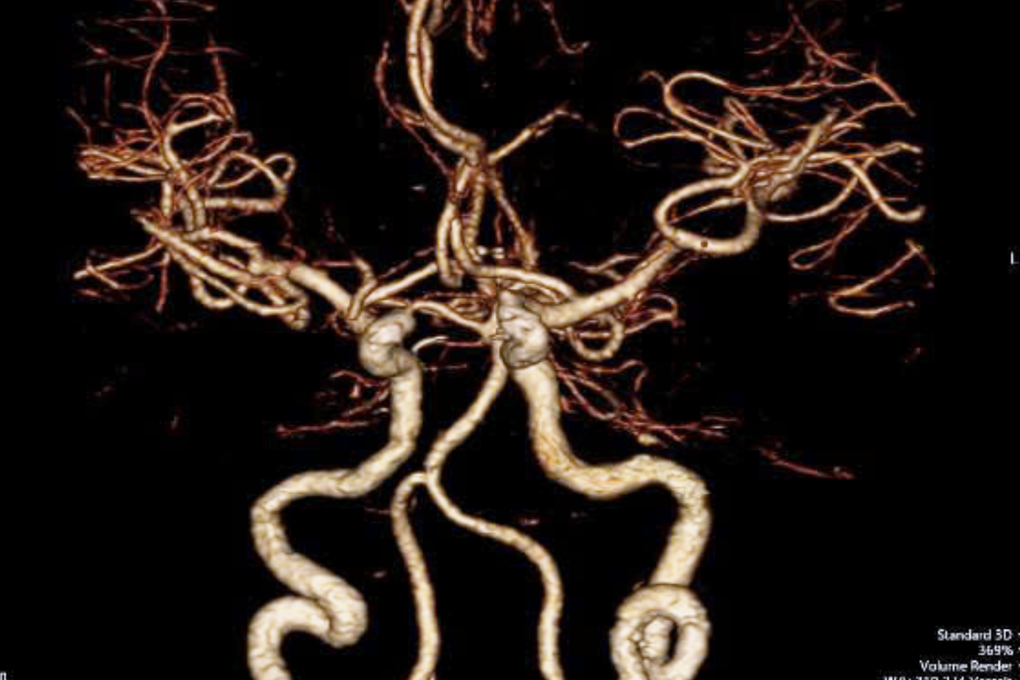
Angiography of the patient (Photo: Hospital).
After the injection, the patient's dizziness and ataxia were quickly reduced, he gradually walked and moved normally, no large vessel stenosis was recorded and he was transferred to the Department of Neurology for further treatment and monitoring.
After 7 days of intensive care, the patient was discharged from the hospital, with the request to strictly follow the doctor's prescription and long-term control of hypertension.
In particular, patients need to completely quit drinking alcohol and limit strenuous sports , as they can affect blood vessels.
Dr. Le Minh Man, Department of Neurology, shared that although exercising is good for health, stroke can still occur during or immediately after exercise, if the exercise is too strenuous and at high intensity.
Many cases of stroke during sports occur in people who already have risk factors or underlying cardiovascular and vascular diseases, such as high blood pressure, cardiovascular disease, cerebral vascular malformations...

The patient is out of danger after receiving intensive treatment (Photo: Hospital).
Additionally, in contact sports or high-impact sports, trauma can lead to carotid artery dissection, a common cause of stroke in young people and athletes.
Doctors recommend that when detecting signs of stroke in people around them (such as crooked mouth, paralyzed arms, difficulty speaking, loss of balance, loss of vision...), they should be taken immediately to the nearest medical facility with a stroke treatment specialist for timely treatment.
Absolutely do not treat with folk methods, because it will waste the "golden time", causing the patient to fall into a coma, even endangering life.
Overnight transfer of heart attack patient from island to mainland
In the early morning of October 15, a helicopter of the 18th Army Corps landed on the roof of the Orthopedic Institute, Military Hospital 175 ( Ministry of National Defense ), bringing a patient with acute myocardial infarction from Thuyen Chai Island (in Truong Sa special zone) to the mainland for treatment.
Previously, on the morning of October 14, Mr. B.D.D. (born in 1969, from Ninh Binh) experienced increasing chest pain and was taken to the Thuyen Chai Island infirmary by his teammates in a state of difficulty breathing and sweating.
Doctors quickly stabilized the patient and connected to an emergency telemedicine consultation with Military Hospital 175. The online consultation results determined that the patient had a 4-hour acute myocardial infarction, with hypertension and type 2 diabetes, with a very serious prognosis, at risk of arrhythmia, cardiogenic shock and sudden death, requiring emergency transport to the mainland for treatment.
Complying with the order of the Ministry of National Defense, the 18th Army Corps mobilized a helicopter crew led by Lieutenant Colonel Do Hoang Hai as captain, along with the Air Rescue Team of Military Hospital 175 to depart from Tan Son Nhat Airport at 4:30 p.m. on October 14.
The flight overcame harsh night conditions, ensuring absolute safety.
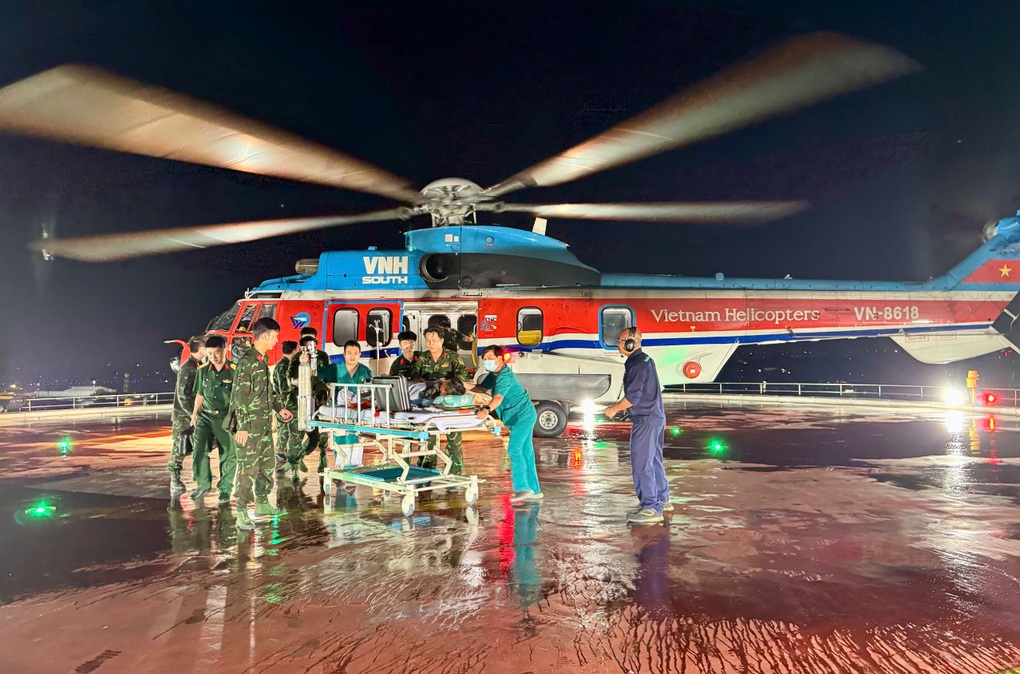
Helicopter brought patient back to the mainland safely (Photo: Hospital).
Major Dinh Van Hong, Head of the Air Rescue Team, said: "At the time of approach, we assessed the patient to be at very high risk during transport.
We actively handled the situation on the spot to ensure the patient was stable and safe throughout the journey. Despite the harsh night flight conditions, with close coordination between the flight crew and the medical team, the flight was completed in absolute safety, bringing the patient home on time."
Upon arrival at Military Hospital 175, the patient was transferred to the Emergency Department for specialized testing and intensive treatment to maximize control of the risk of cardiovascular complications.
The patient had two coronary stents placed and is now in stable condition.
Source: https://dantri.com.vn/suc-khoe/nam-thanh-nien-o-tphcm-dot-quy-khi-dang-choi-bong-da-20251016152532785.htm








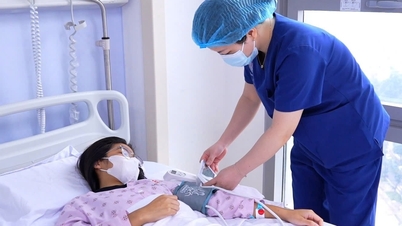

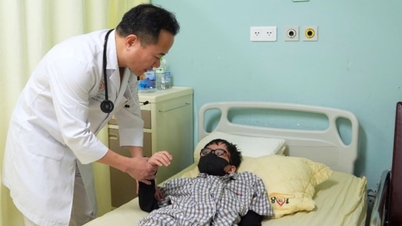






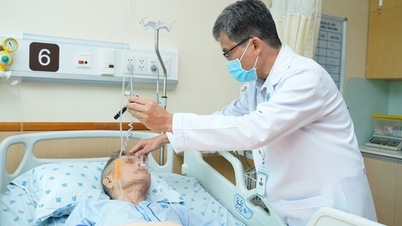

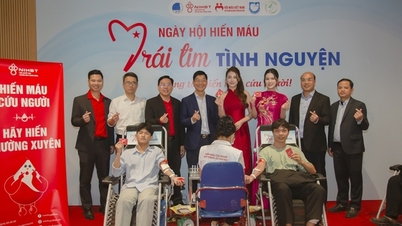
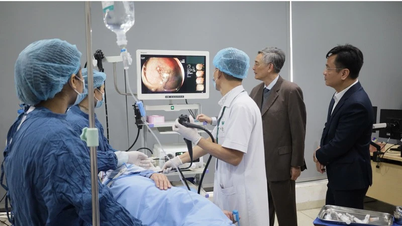


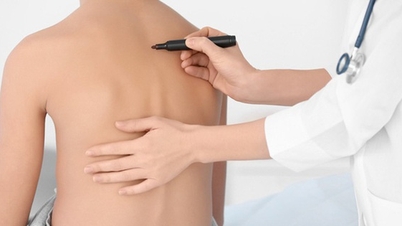










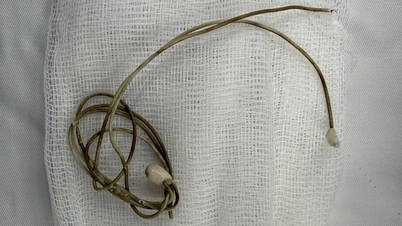









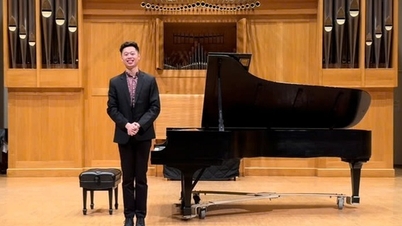

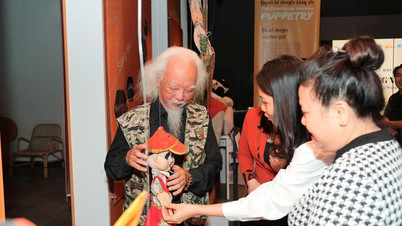

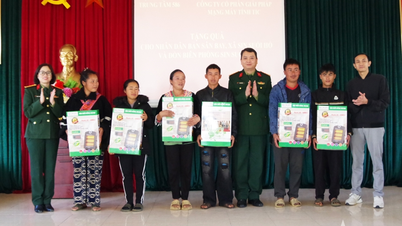



































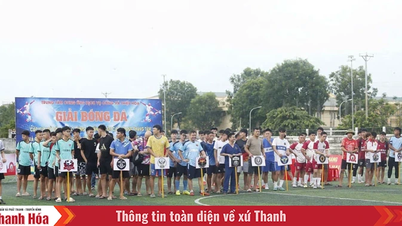

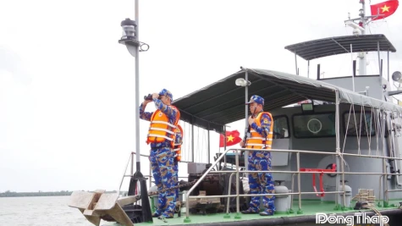























Comment (0)